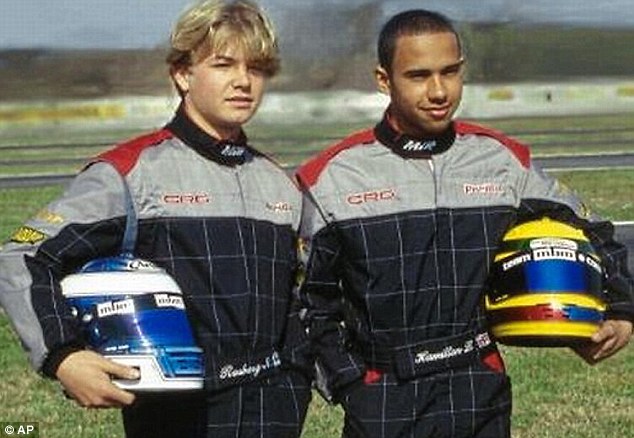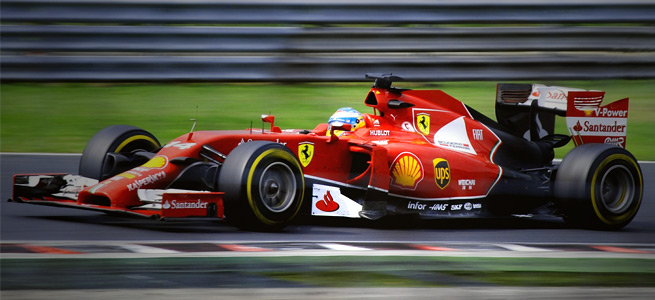
In a recent post I stated that Formula 1 Racing was not a pure sport because of the heavy reliance on technology in terms of driver performance. However, despite that I still find it a fascinating and even somewhat complex sport.
From a competition point of view it is multi-faceted. On the face of it, one driver is competing against another 21 other drivers to see who is best. In reality you have driver vs team mate, team vs team and engine manufacturer vs engine manufacturer. Impacting on all of this is whether it’s a works team connected to an established car manufacturer, like Ferrari and Mercedes or a general racing team like Williams, Red Bull or Force India who are on the face of it free to choose their own engine supplier.
Of course although Formula 1 may have the fastest cars It does not necessarily mean they have the best drivers. The prestige of Formula 1 and the money on offer does help attract the top talent, as do the financial sponsorship deals that each team can broker. However in some instances this can mean a pay to drive relationship with a driver, where essentially the team is paid to employ a particular driver. This or simply weighing up the individual or additional spnsorship a driver can attract will be a deciding factor. This might be due to a driver’s nationality, media profile or direct links to sponsors. Of course whatever the influences they have to contend with every team wants the best driver who will bring out the best from their car, score more points and win races.
From a driver’s point of view the first individual obligation or challenge is to beat your team mate, given that each team has two cars and two drivers in each race. Now it becomes fascinating. Some teams have a clearly established number one driver and then a number two. In this instance it is known by everyone in the team that the job of the number two is obviously to score as many points as possible, but on occasion to sacrifice his own race to help the number one driver, who may be a genuine championship contender. Getting the right number two is crucial. If he is not good enough he is not involved enough to take points from other drivers or simply hold them up at crucial times. Too good, and he’s right there battling with your number one (given that their cars will perform more or less identically) and taking crucial points of him. Not to mention the possibility of team mates crashing into each other and perhaps that being followed up by coming to blows. Though it all adds to the excitement. In many instances the number one driver emerges naturally based on results and team orders between drivers are kept to a minimum.

At the time of writing team mates Nico Rosberg and Lewis Hamilton are busy battling at the top of the world championship leader board, having just swung slightly Rosberg’s way again. The son of a former champion, Rosberg certainly has the pedigree by virtue of early exposure and growing up in a racing family. Monaco seems to be his real home, but he races under a German flag for a German team and also has strong FInnish credentials. The perceived wisdom is that Lewis Hamilton is the better/faster driver and coming out on top in the last two seasons backs this up. The competition between the two and ill-feeling between the two former best friends adds to the drama. However, in my opinion Rosberg has turned a corner. He seem to have accepted (at least publicly) that Hamilton may in many ways be a better and more aggressive driver. What he has also realised is that in a one lap qualifier he can be just as fast and come out in pole position. He also realises that with a great start he can steal an advantage at the beginning of any race. Together, this means he can take the lead in any race and be good enough to maintain that lead by virtue of both driving skill and having a superior car. What he is also beginning to do is publicly state how great a driver is Hamilton, and how the each race may have panned out differently had Hamilton had better luck etc. This constantly wrong foots the media and reporters who are always too ready and willing to put that question to him themselves. In a nutshell, he has settled on a simple formula that is working for him: Qualify well, start well, drive well, make use of the superiority of the car, win a lot of races and then put it down to luck when interviewed.

Race wins equal points, and the onus is now on Lewis Hamilton to do better and be more consistent. Otherwise Nico Rosberg will be world champion. What a great and simple strategy and a good way of seeing sports psychology in action.
The immediate business lessons are firstly, not to waste time or lose sleep focussing on the things you cannot control. Secondly it is to focus on improving the things you already do well, especially things you CAN do better than anyone else. Thirdly, it is to break your task down into individual winnable battles that will help you achieve your desired goal. Fourthly it is to redefine that goal into something you can win. In this example that is scoring more points than your team mate in as many races as possible over the course of a season, and finishing second in any race that you don’t win. Not winning the world championship. Not being the best driver in Formula 1. Those things will fall into place automatically if the first goal is achieved.
In another post we will examine the various income strategies and opportunities that Formila 1 generates at different levels.

Great incisive analysis.